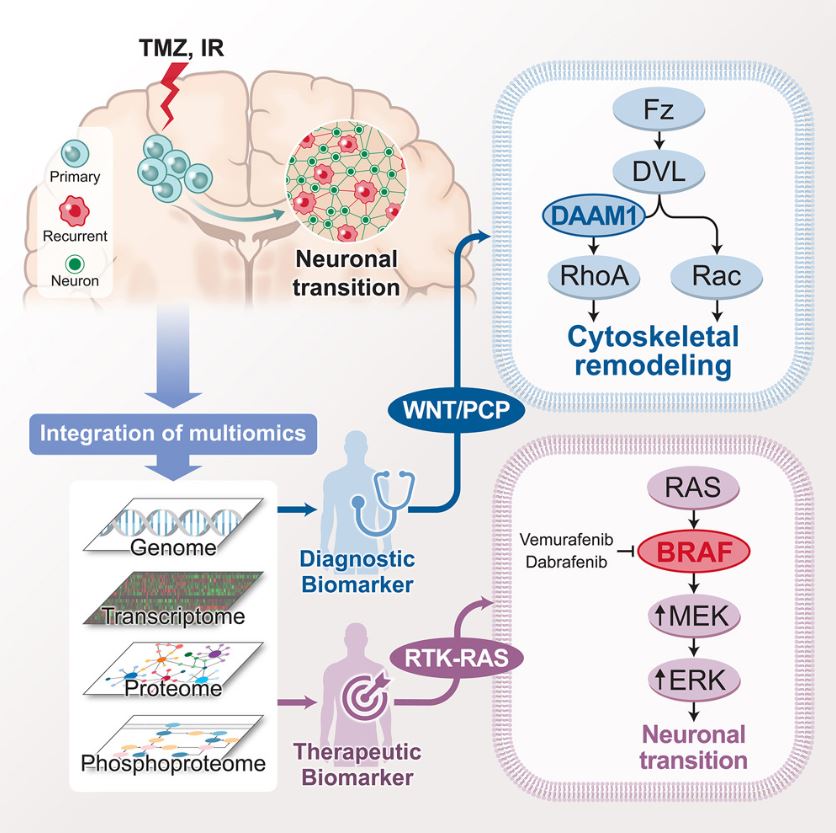Jurisdiction:
South Korea
Organ System:
Brain
Funding Organizations:
- National Cancer Center, S. Korea
- National Research Foundation of Korea
- National Institutes of Health, USA
Research Organizations:
- National Cancer Center, S. Korea
- University of Miami Miller School of Medicine, USA
- Korea University, S. Korea
- Seoul National University, S. Korea
- Hopitaux Universitaires La Pitie Salpetriere - Charles Foix, France
- Equipe labellisee LNCC, France
- Foch Hospital, France
- University of Michigan, USA
Principal Investigators
:- Jong Bae Park
- Antonio Iavarone
- Do-Hyun Nam
- Chul-Kee Park
- Jason K. Sa
- Marc Sanson
Publication:
External Links:
The evolutionary trajectory of glioblastoma (GBM) is a multifaceted biological process that extends beyond genetic alterations alone. Here, we perform an integrative proteogenomic analysis of 123 longitudinal glioblastoma pairs and identify a highly proliferative cellular state at diagnosis and replacement by activation of neuronal transition and synaptogenic pathways in recurrent tumors. Proteomic and phosphoproteomic analyses reveal that the molecular transition to neuronal state at recurrence is marked by post-translational activation of the wingless-related integration site (WNT)/ planar cell polarity (PCP) signaling pathway and BRAF protein kinase. Consistently, multi-omic analysis of patient-derived xenograft (PDX) models mirror similar patterns of evolutionary trajectory. Inhibition of B-raf proto-oncogene (BRAF) kinase impairs both neuronal transition and migration capability of recurrent tumor cells, phenotypic hallmarks of post-therapy progression. Combinatorial treatment of temozolomide (TMZ) with BRAF inhibitor, vemurafenib, significantly extends the survival of PDX models. This study provides comprehensive insights into the biological mechanisms of glioblastoma evolution and treatment resistance, highlighting promising therapeutic strategies for clinical intervention.

